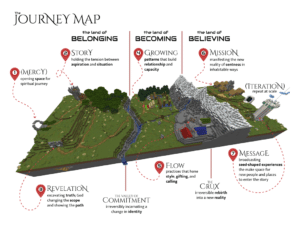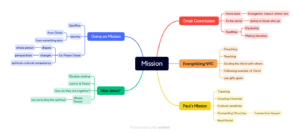Camper Behavioral Correction Guideline
Overview:
It is the goal of Camp Deerpark to provide summer staff with tools, ideas, and a structured system for guiding campers in positive behavior. Because the camp setting is sometimes physically and emotionally draining it is inevitable that camper (and sometimes staff) behavior will at times be inappropriate. As Camp Deerpark staff it is our job to love each camper with the love of Christ in spite of their behavior. It is our job to be sensitive to each child’s emotional, physical, and spiritual needs as we seek to avoid behavioral problems before they happen. The following tools and strategies will simply help us in the process of loving children. True love for children only comes through the grace of God as we allow God to fill us with His Spirit.
Guiding Principles:
- Proactive approaches should be used to reduce the need for reactive discipline.
- Intervention should happen early to avoid escalation
- Interventions should never leave the camper feeling worthless, degraded, or estranged from the counselor.
- Correction should be done privately whenever possible
- Corporal (physical) punishment of any kind is unacceptable
- Interventions should lead the camper to positive behavior
Nine habits of a highly effective counselor
1. Know that Christ loves you, love others
It seems really basic, but keep the knowledge of Christ’s love for you fresh in your mind. You have screwed up in life, hurt people, broken relationships, made some really bad choices. Christ doesn’t let that stand in the way. He loves you, a lot! He died for you. Keep this in mind as you try to find the strength to love difficult campers.
2. Never Yell
“When you yell, you lose” The love of Christ is not communicated with a raised voice. A raised voice communicates anger, frustration, contempt, disrespect, and desperation. It also creates a relational wall between the counselor and the camper. Communicate in a way that shows grace, respect for the camper, understanding, and a firm seriousness.
3. View behavior in terms of needs.
Challenging behavior sends the message of needs not being met. The behavior could mean, “I’m lonely,” “I’m bored,” “I have no power,” “I don’t feel safe,” “I don’t feel valued,” “I have physical pain,” or indicate other needs. A single behavior, too, can reflect several needs. Behaviors can also reflect emotional damage the child might have experienced because of needs that were not met at a younger age.
4. Work with the camper, not against the camper.
It is not you against them. It is us against misbehavior. Ask campers how you can help and support them. Get their input into how to handle their misbehavior. Ask them for ideas. Give campers ideas on how to handle their emotions prior to the emotions arising. This will improve the person’s whole life-relationships, camp participation, increased choices, skill development, and contributions to others.
5. Don’t assume.
Diagnostic labels and past performance often cause people to underestimate another’s potential. Concentrate on the person’s strengths and providing adequate support rather than concentrating on deficiencies associated with the diagnostic label. Speak to the person even if you’re not sure whether the person understands. Never speak about the person with a disability as if that person wasn’t present. It isn’t polite, nor is it supportive.
6. Relationships make all the difference.
Many children with emotional differences live in extraordinary isolation. Some depend entirely on their family or make poor social relationships. Take the time to develop relationships with your campers and especially those that are challenging.
7. Help the person to develop a positive identity.
A person with challenging behavior commonly gets identified as a “problem,” which carries a negative message for the person and those around him or her. Build a positive identity by helping the person find a way to make a contribution and better support those in his or her life. Make sure that the person’s strengths and capabilities don’t get forgotten when reducing or eliminating challenging behavior.
8. Give choices.
If the person uses challenging behavior to express needs, give the person choices and allow the person to make choices throughout the day. Say “I know you are upset. What will help you calm down? A walk? A different activity?” rather than “Do it my way, or else.” Choice does not mean free rein. Set limits with the input of the person with a disability. Every relationship has limits. 9. Help the person to have more fun.
Fun is a powerful cure for problem behaviors. Is the person with the having the same amount of fun as other people you know? If not, look for things the person enjoys doing. Make fun a goal.
Related Entries
Share:
Releasing and Loving “The Other Side”
This is Session 1 of the Prince of Peace: Jesus and Peacebuilding from the Election to the Holidays webinar series. (Click here to sign up for session invites.) This session is about what we do with those in our lives who see things differently — even very differently. We do this using a paradigm from…
Story of A Tree
A fresh tree stump is like a magnet to me. I have to look at the rings to read the tree’s story. It’s at once humbling to look inside a living thing that is much longer-lived than yourself, but also encouraging to see how it weathered the ups and downs of life, the good times…
Camp’s Political Endorsement
I’ve been eligible to vote for 30 years, but – like many in my generation – I’ve never felt like a politician or party truly represented me. They may win me at one point, but they’ll loose me in the next. When I have voted, it always seemed I was going to the polls holding…
Prince of Peace
Camp’s mission statement says we offer people the opportunity to fellowship in “serenity”. Serenity literally means “clear skies” — a state of refuge from the storms of the World. Right now, our World does feel pretty stormy with a divided country going into an election and numerous disasters and conflicts abroad and at home. Because…
Mapping Spiritual Journey with NYC Leaders
In order to know where you’re going, it’s a good idea to know where you are. One of the best ways to know where you are is a good map. The NYC LMC District is seeing growth in many of our churches right now, and opportunities for re-inventing and re-launching in others. But these are…
How Do You Define Mission?
When somebody says “I’m on a mission”, what do you think of? If the word is said in church, what is the first thing that comes to mind? You may think of someone clutching a Bible in a jeep jostling down jungle roads. Or you cold be thinking of a caring staff at an remote…
A Special Request for Baby Vivian
Serving God, while the greatest of blessings, is no guarantee that everything will go well in life. Tragedy, difficulty, and suffering can find any of us at any moment, and when it does, the people of God are essential in helping us navigate the valleys of shadow with Jesus by our side. Ben Gosnell came…
You Can Always Come Home
In the pursuit of mission, I’ve moved around a lot as an adult. To be perfectly honest, I haven’t found a place since Mom and Dad’s house that I felt was mine — a place I could call home. If you find yourself longing for home, you’re in some pretty good company. It says in…
Map Makers Project
Camp is a big place and we have some big plans. But this raises a big question: Just where is everything? In the past, we asked around and maybe somebody would know. Now, we’d like to get all that information down on a map. We’ll use it to maintain the grounds, plan maintenance projects, and…
Welcoming Wisdom: Cabin 2 Opens in Promise Woods
We’re very pleased to announce that Cabin 2 “Wisdom” is now open in Promise Woods for retreat groups and other guests. Wisdom is our 5th (of 6) bunk cabin to be completed and it sleeps 10 in the spacious bunk room and two more in the cozy bedroom. Like all of our camper-style cabins, it…
- « Previous
- 1
- 2
- 3
- 4
- Next »









